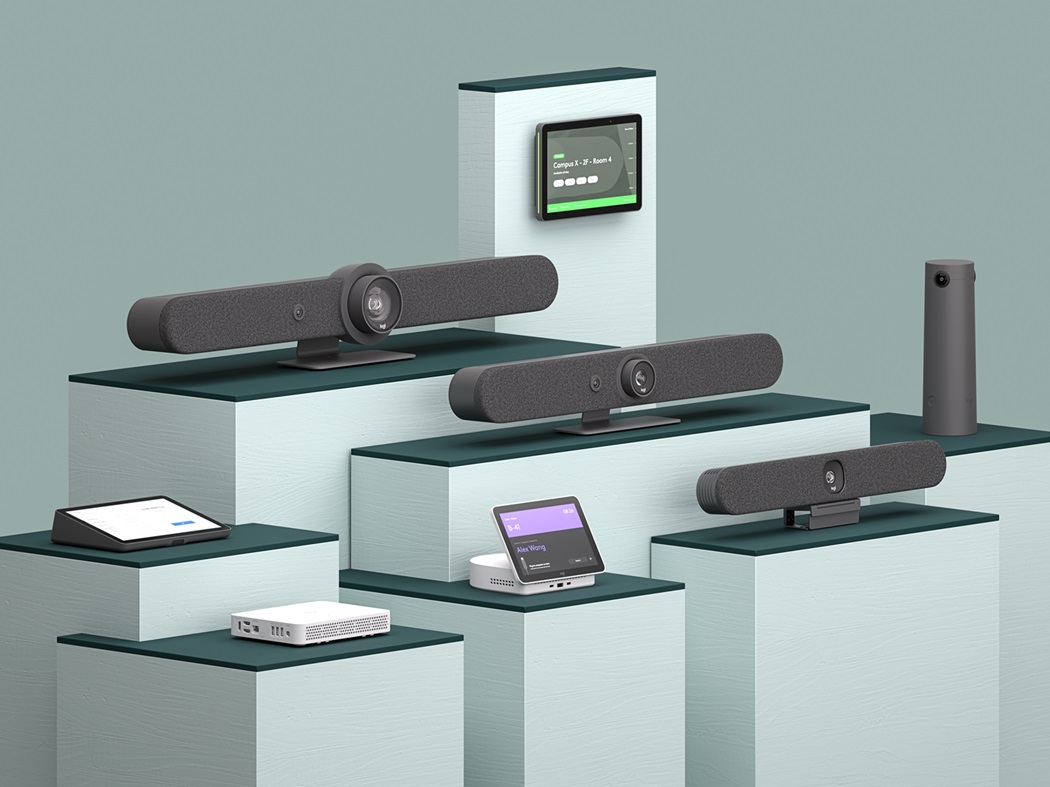Logitech has announced that all video collaboration devices that run on the CollabOS operating system will now be manufactured with next-life plastics. This move will help enterprise customers support their sustainability objectives.
Efforts to reduce negative environmental impact have rapidly become a business imperative. In a recent survey by analyst firm Frost & Sullivan, 65% of IT professionals say that becoming a leader in environmental, social, governance and sustainability practices is a critical or very important business objective in the coming year.
Logitech’s video conferencing portfolio will now be designed for sustainability, using materials that lower the carbon impact of each product. Existing products such as the Rally Bar, Rally Bar Mini, Tap IP, Tap Scheduler, and Scribe– are being refreshed with materials that lower the carbon impact of each product.
“By transitioning our portfolio of conference room devices to a lower product carbon footprint, we are helping other companies better navigate their sustainability challenges,” said Prakash Arunkundrum, Chief Operating Officer at Logitech. “We’re not only designing and manufacturing new products with recycled plastic and other lower-carbon materials but refreshing existing products to provide IT leaders with a new way to evaluate their workplace technology investment in conference room systems – one that includes people and planet. We do this without increasing prices or compromising the highest quality and performance companies expect from Logitech.”
Applying Design for Sustainability (DfS) principles to Logitech’s video collaboration portfolio means that Logitech customers can outfit entire conference rooms– including Microsoft Teams Rooms and Zoom Rooms–with sustainability focussed technology. This development expands on the progress already achieved with personal workstation peripherals such as webcams, headsets, mice, and keyboards.
A key tenet of DfS is the use of circular materials that can be recovered from the waste stream and given a second life, including post-consumer recycled plastics (PCR) that Logitech calls “next-life plastics.”
Logitech has decreased its Scope 3 emissions by 21% in 2022 with the goal of removing more carbon than it creates by 2030. To drive carbon reduction at an even bigger scale and stimulate industry-wide progress, Logitech is offering to openly share its DfS principles, tools and knowledge of how to incorporate more sustainable materials in the manufacturing process with any organizations in the consumer technology industry interested in increasing their sustainability efforts. For a consultation on how to incorporate more sustainable materials into your manufacturing process, contact sustainability@logitech.com.
Transparency and Accountability
As more companies hold themselves accountable for measurably reducing their carbon impact, they increasingly seek out technology vendors who provide transparency via key performance indicators, reporting, and third-party certifications. Logitech is on track to achieve its 2025 target of having a product carbon footprint for every product in its portfolio, making it easier for company technology buyers to make informed decisions about–and report on– the scope of their impact when outfitting their global workforces for meeting rooms, personal workstations, and flex desking. Logitech annually reports on its progress toward its Climate Action goals in the 2023 Impact Report.
Ad of 2 years. Logitech’s internal user model for room VC equipment (based on recorded data from VC room usage)
Article Provided




























